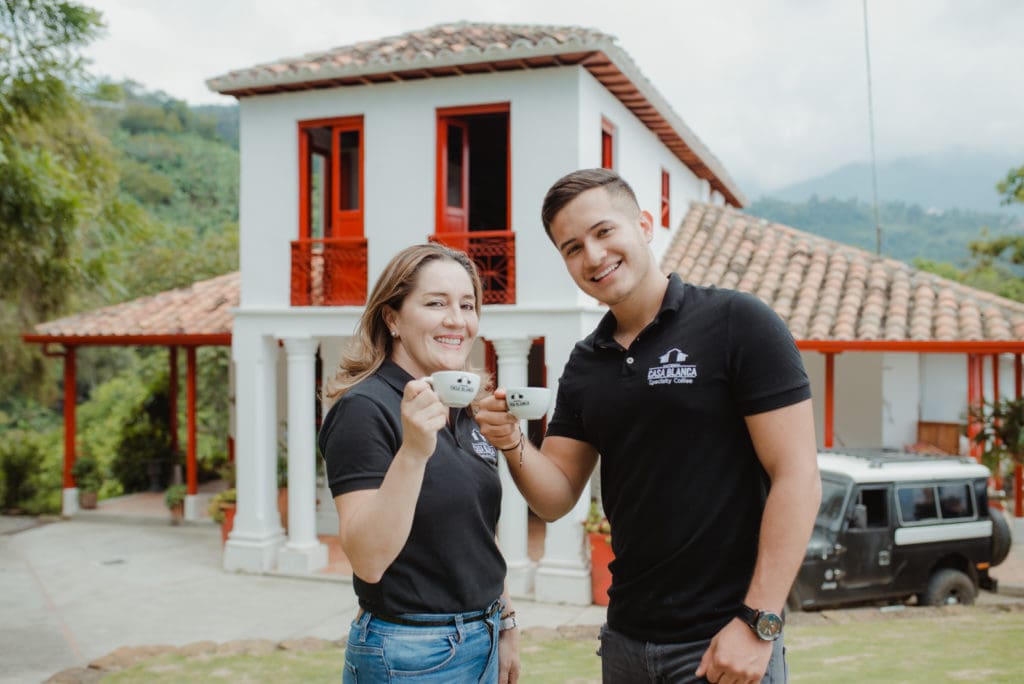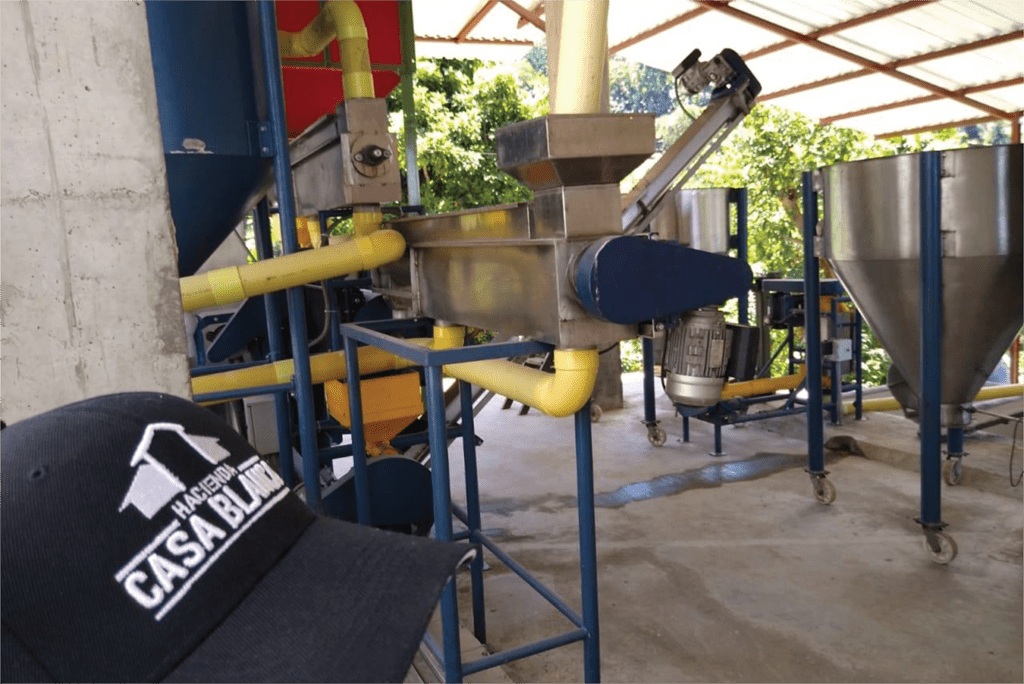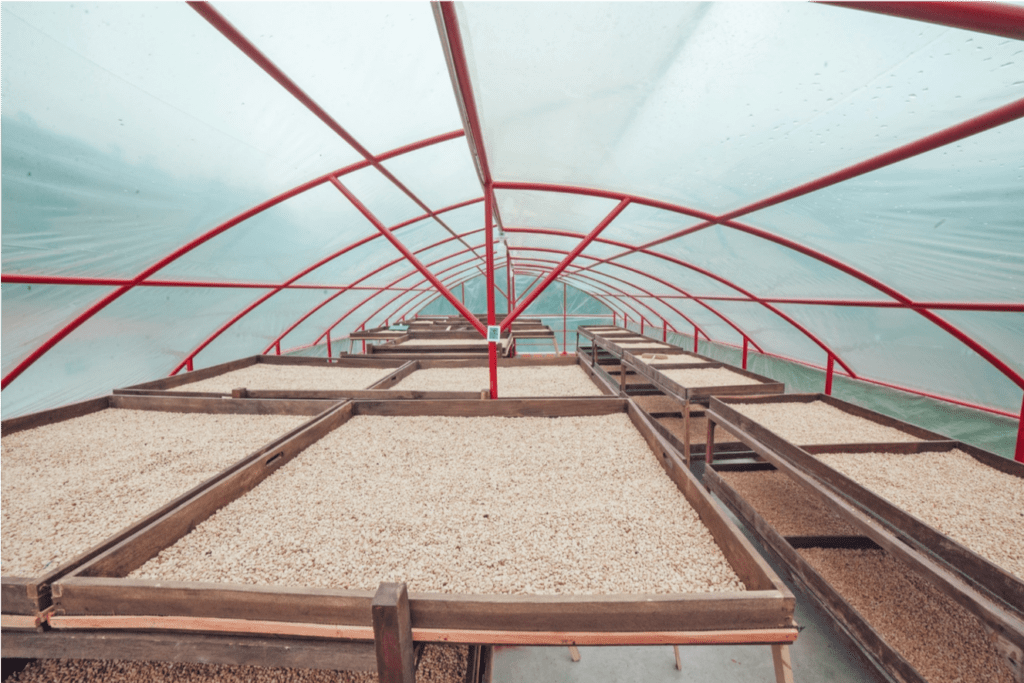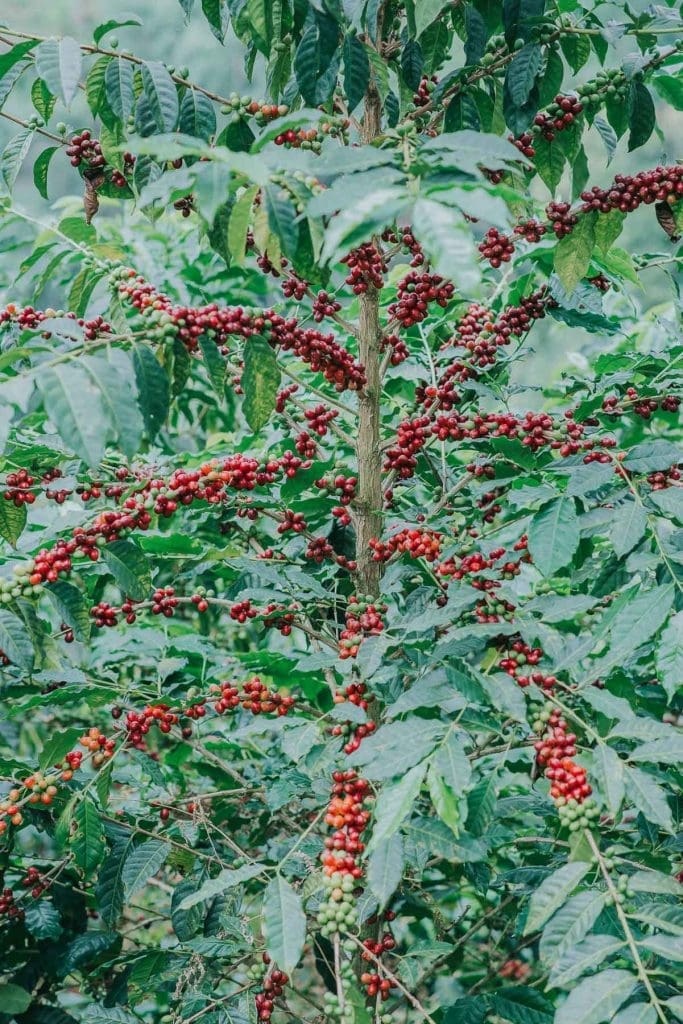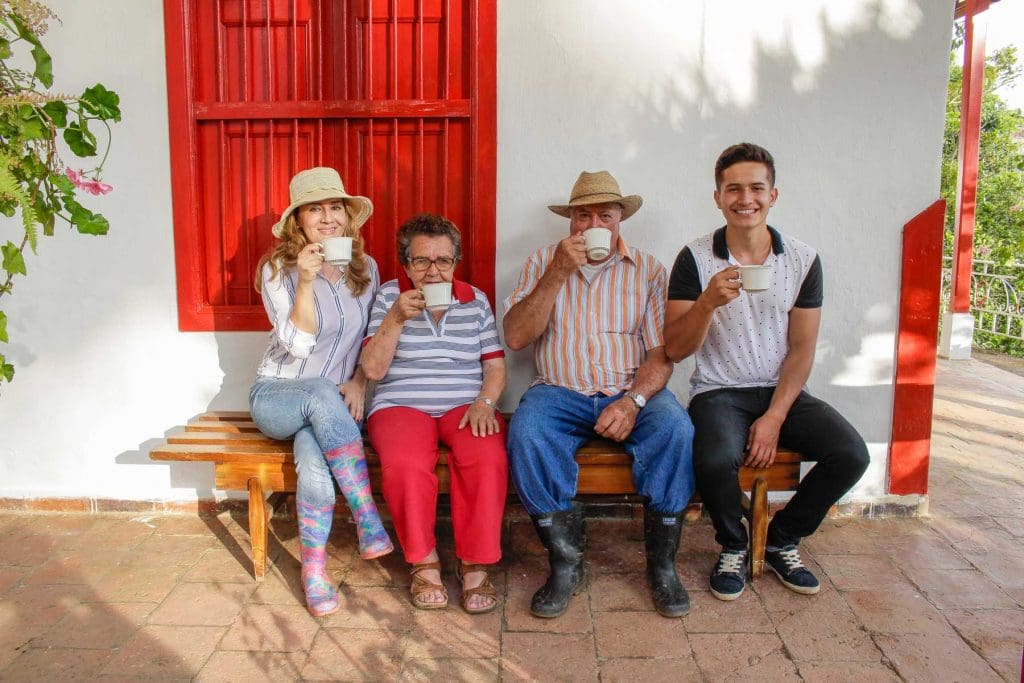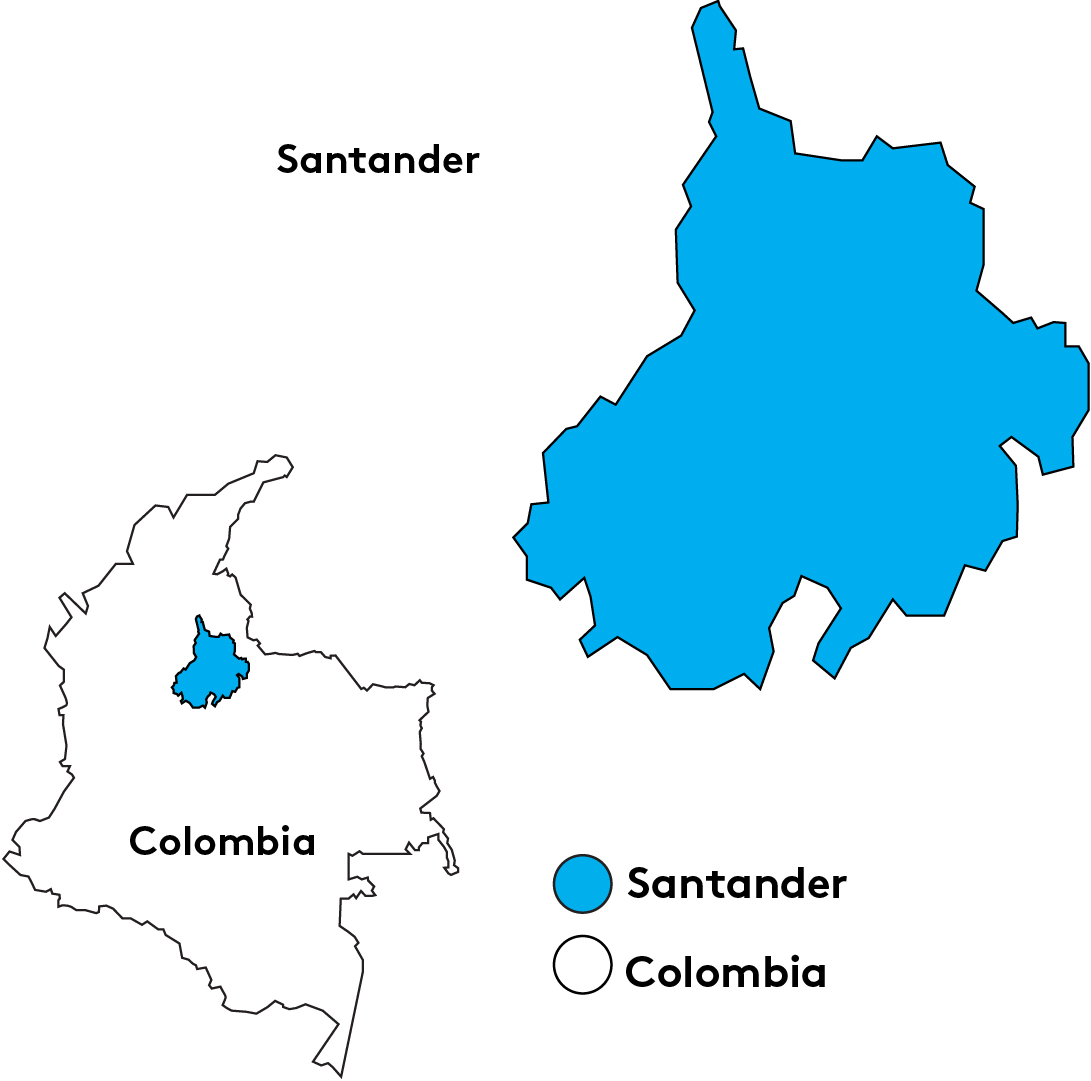Liliana Caballero Rojas and her family acquired Hacienda Casablanca in Vereda Vericute, Municipio Floridablanco in 2006. Hacienda Casablanca dates back to 1860, three years after the Department of Santander, where it sits, was founded. It was initially known as Villa Josefa, then called Hacienda La Leona, and finally named Hacienda Casablanca. Liliana is a native of Santander, born to parents who worked in agriculture, and grew up to dedicate herself to cultivating coffee to provide a better life for her family and for the people who work year-round and seasonally on Hacienda Casablanca.
Liliana has a background as an administrative and financial professional, and through that lens she has a vision to add value to her coffee fields through planning, renovating older parcels, planting new varieties, and improving processing and drying techniques. Winning first place in the National Yara Champion Program in 2016 helped to motivate her to continue striving for excellence, which shows year over year in her crops. Liliana also sells roasted coffee to the local market in packages she designed herself to bring in additional revenue, which has been helpful in the past during times of pricing crisis.
The property initially extended across 150 hectares of what have traditionally been coffee growing lands since the estate’s beginning. The large size gave it the identifier “hacienda,” meaning estate, which in Colombia is used to indicate ample properties. The original estate was subdivided over the years, and today the 20 hectares that remain as Casablanca still include “Hacienda” in the name as a nod to the farm’s history, including the main house and its original architecture from the mid nineteenth century.
This lot of Gesha coffee underwent Natural processing. Once the ripe cherries are harvested they are taken to the mill where they are sorted to remove any twigs, leaves, or immature cherries. Cherries are fermented for 150 hours in sealed tanks before being dried. The fermented cherries are then dried in a silo until the humidity reaches 15%. The partially dried cherries are then rested for 10 days in GrainPro bags before they are moved to finish being dried to 11% humidity in the sun.
